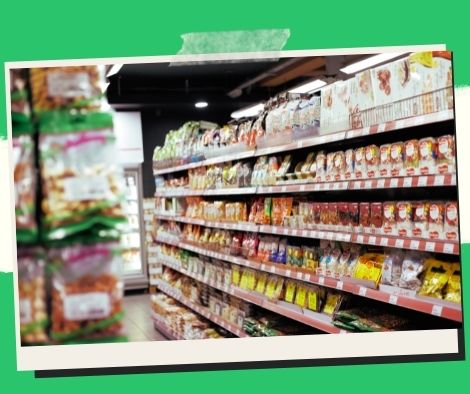
DOF: The proposed levy on salty foods does not apply to instant noodles.
According to Benjamin Diokno, secretary of the Department of Finance (DOF), instant noodles are exempt from the planned tax on salty goods.
If you’re picturing the noodles, they contain 60% sodium, which is a lot of salt. It won’t be protected. In his weekly press conference, Diokno added, “That’s actually for the poor.
Last week, Diokno declared that as a proactive move to combat diabetes, obesity, and non-communicable diseases linked to poor diet, the DOF and the Department of Health (DOH) are working together to pursue a tax on junk food and sugary beverages.
The DOF intends to levy a PHP10 tax per 100 grams or PHP10 per 100 milliliters on pre-packaged foods lacking in nutrition, including confectioneries, snacks, desserts, and frozen confectioneries, that exceed the DOH’s established thresholds for fat, salt, and sugar content.
Regardless of the sweetener used, the DOF plans to raise the tax rate on sweetened beverages under the TRAIN law to PHP12 per liter.
Exemptions will be eliminated to increase the tax base, and the tax rate will be adjusted annually by 4%.
According to Diokno, the plan is both a health and a revenue initiative.
Both are true. Long-term effects will be significant as a health metric. The National Nutrition Council and DOH are being consulted. We’ll keep talking to each other. What we’ve announced hasn’t been [firmed up] yet, according to Diokno.
According to Diokno, the plan to tax junk food and hike the levy on sweetened beverages will assist in expanding the tax base and generating more revenue.
“Important socioeconomic initiatives launched by the Marcos administration, such as the Department of Social Welfare and Development’s food stamp program, would be supported by additional tax revenues from this tax package. To reduce food insecurity and malnutrition, he said this program will assist 1 million food-insecure households.
He continued that the maker and seller of sugary goods subject to tax are also expected to object as this will drive up market prices.
“However, given the significant gap between the domestic and global prices of sugar, permitting the industry to import its own sugar needs would lower manufacturing costs. This is the sweetener or incentive for manufacturers of sugary goods to agree to the more inclusive, straightforward tax on sugary goods, according to Diokno.
He said the idea would help Filipinos live longer and healthier lives.
In the long term, the man stated that it also lowers the government’s expenses for delivering healthcare to its citizens.
Save/Share this story with QR CODE
Disclaimer
This article is for informational purposes only and does not constitute endorsement of any specific technologies or methodologies and financial advice or endorsement of any specific products or services.
📩 Need to get in touch?
📩 Feel free to Contact NextGenDay.com for comments, suggestions, reviews, or anything else.
We appreciate your reading. 😊Simple Ways To Say Thanks & Support Us:
1.) ❤️GIVE A TIP. Send a small donation thru Paypal😊❤️
Your DONATION will be used to fund and maintain NEXTGENDAY.com
Subscribers in the Philippines can make donations to mobile number 0917 906 3081, thru GCash.
3.) 🛒 BUY or SIGN UP to our AFFILIATE PARTNERS.
4.) 👍 Give this news article a THUMBS UP, and Leave a Comment (at Least Five Words).
AFFILIATE PARTNERS

World Class Nutritional Supplements - Buy Highest Quality Products, Purest Most Healthy Ingredients, Direct to your Door! Up to 90% OFF.
Join LiveGood Today - A company created to satisfy the world's most demanding leaders and entrepreneurs, with the best compensation plan today.



 Business Technology, Finance Technology & Information Technology
Business Technology, Finance Technology & Information Technology





